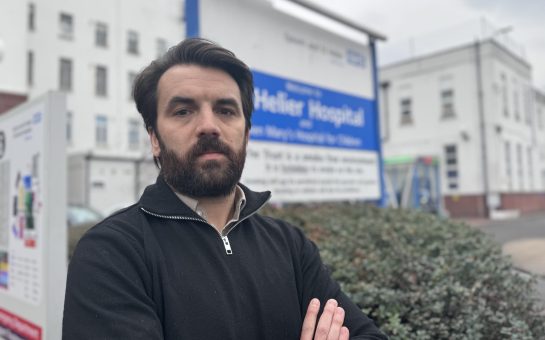The number of mentally disordered offenders has increased steadily in the past ten years, which experts claim may be due to understaffing in the mental health sector.
Mentally disordered offenders, known as restricted patients, are detained in a hospital for treatment rather than in prison and according to Ministry of Justice data, this population has jumped by nearly 20%, from 6,682 in 2013 to 7,833 in 2023.
Over time, the number of male restricted patients has increased by 19%, dominating the population with 88% in 2023, while the number of female restricted patients has increased by only 5%.
Although women are more frequently diagnosed with mental health issues, male patients are more likely to exhibit violence, according to Mental Health UK.
In 2023, more than 60% of restricted patients committed the offense of violence against the person, and males committed more sexual offenses than females, who tended to commit criminal damage and arson.
A study “Psychiatric Illness and Criminality” shows psychiatric conditions may increase a person’s risk of committing a crime, with research suggesting inadequate treatment will lead to mental health patients becoming more prone to violence.
The Care Quality Commission, an independent regulator of health and adult social care in England, also mentioned understaffing in the mental health sector can affect the safety of patients and staff, with a lack of therapeutic interventions leading to an increased risk of violence and aggression on the wards.
These issues may therefore create a vicious cycle of mental health issues and violence.
Steven Davis, a mental health nurse with 30 years of working experience, who has worked in forensic settings and secure hospital in West NHS London, said: “We all work under pressure, there is never enough staff and time for mental health workers.”
He said: “It is not the patient’s fault. Restrictive practice undermines the therapeutic relationship, where in mental health, that’s what we’re trying to go in for, to build that relationship with patients, but people haven’t taken the time to talk to patients with respect and dignity.
“What I’ve learned over the years of being a clinician is that it’s all about the time and the approach.
“We just need to go back to basics, to talk with patients in a calmer manner, swap your voice around, and be mindful of the language.”
In some cases, restricted patients detained or admitted in secure hospitals may undergo chemical, mechanical or physical restrictive practice.
However, Davis said these are heartbreaking and sometimes unnecessary, which may caused by misunderstanding towards patients.
Throughout his career, Davis said he had only been assaulted twice, and emphasised the importance of handling patients with care, compassion, and kindness.
He added: “Therapeutic service is invaluable. Unfortunately, with staffing levels, that just doesn’t seem practical.”
He said many carers have received training mainly about infection control and record-keeping, but have poor communication with patients.
Dr Josanne Holloway, Chair of the Royal College of Psychiatrists’ Forensic Faculty, said there are times when it is necessary for people who have been detained in hospital under the Mental Health Act to be restricted, both to protect themselves and those around them.
She said: “But restrictive practices should only ever be used as a last resort.
“It is also important that we see investment in alternatives, including in therapeutic environments and within the community.”
Holloway also suggested that NHS staff should also be trained to manage aggressive behaviour and it’s vital they communicate effectively with patients.
Last year, more than half of restricted patients detained in hospitals directly from the court were transferred under a hospital order with a restriction order.
However, more than a thousand (27.9%) of restricted patients were transferred from prison, which is the second most common admission category for detaining them in hospitals.
Moreover, the number of people admitted to hospitals from prisons is 61%, compared to 15% from court, raising concerns over the fragmented health care services within prisons.
Peter Dawson, director of the Prison Reform Trust, said: “Prison conditions are guaranteed to damage offenders’ mental health.”
The trust’s latest fact file stated mental health provision is inadequate in prison.
Even the “best” provision region has only nine nursing staff, two psychiatrists, seven occupational speech and language therapists, eight psychologists or therapists, five social workers, and seven support workers, per 1,000 people in custody.
Ian Callaghan, Recovery and Secure Care Programme Manager at a charity Rethink Mental Illness, said: “What we do know is that there are high levels of mental ill-health among people in prison, and that staffing issues mean people can struggle to access support, increasing the chances that they will deteriorate into crisis.”
He said the prisons are often chaotic, overcrowded environments, and sometimes when a person becomes severely mentally ill, they will need to be transferred to a secure hospital for treatment.
Last year, the number of restricted patients admitted to hospital has increased 11.6% from 2013 to 2023, and is the highest since 2003, where the largest admission category is transfer from prisons to hospitals.
However, Callaghan pointed out the fact that although staff are working hard to provide high-quality care and treatment within secure hospitals, people often face unacceptably long waits to be transferred to hospital due to a shortage of beds.
He said: “Care is delivered in an environment with enhanced security, with people still ultimately deprived of their liberty.”
Featured image credit: Rawpixel





